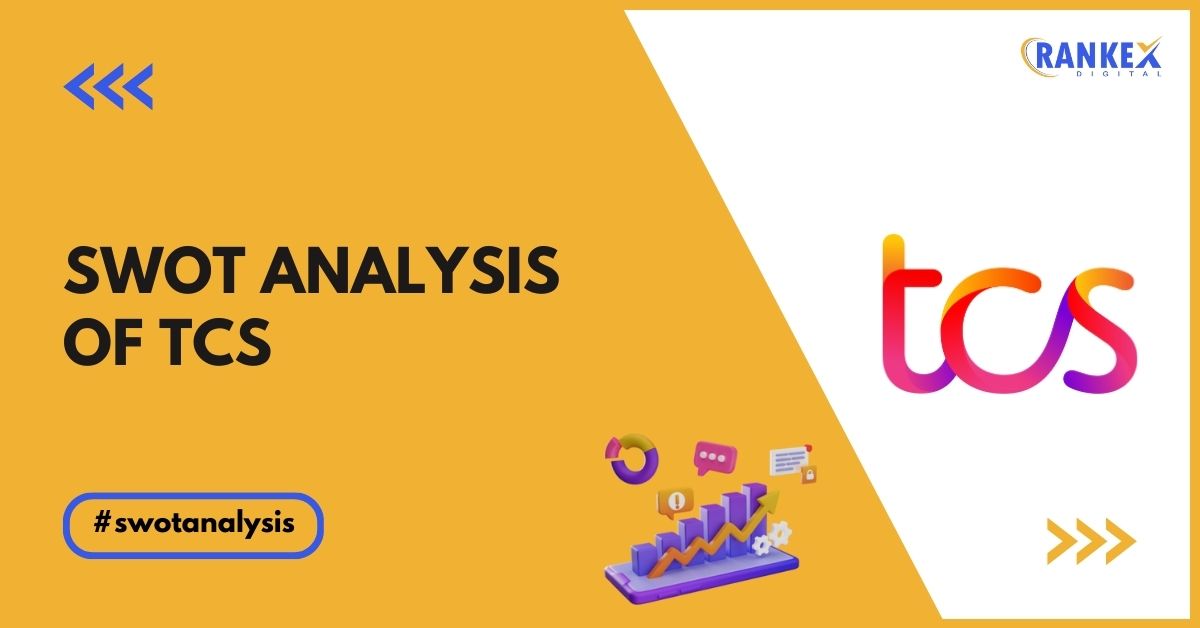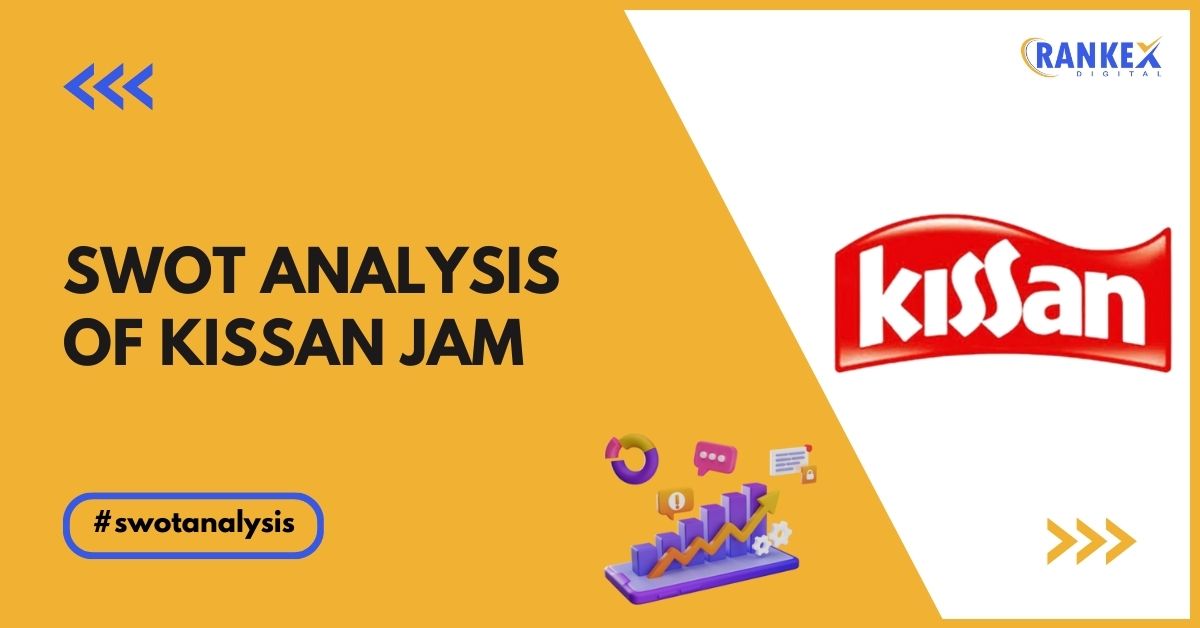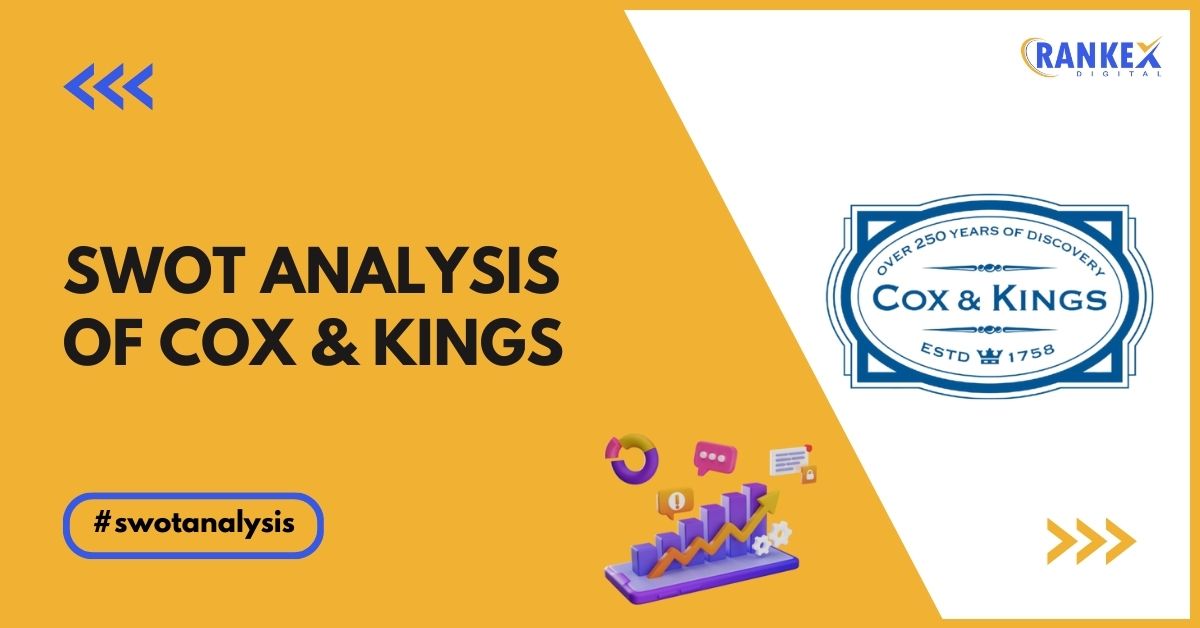Tata Consultancy Services (TCS), part of the Tata Group, is a global leader in IT services, consulting, and business solutions. Established in 1968, TCS has a significant presence across various industries and regions, offering a range of services including software development, system integration, and consulting.
This SWOT analysis of TCS provides an updated look at the company’s strengths, weaknesses, opportunities, and threats.
In this blog
Overview of TCS
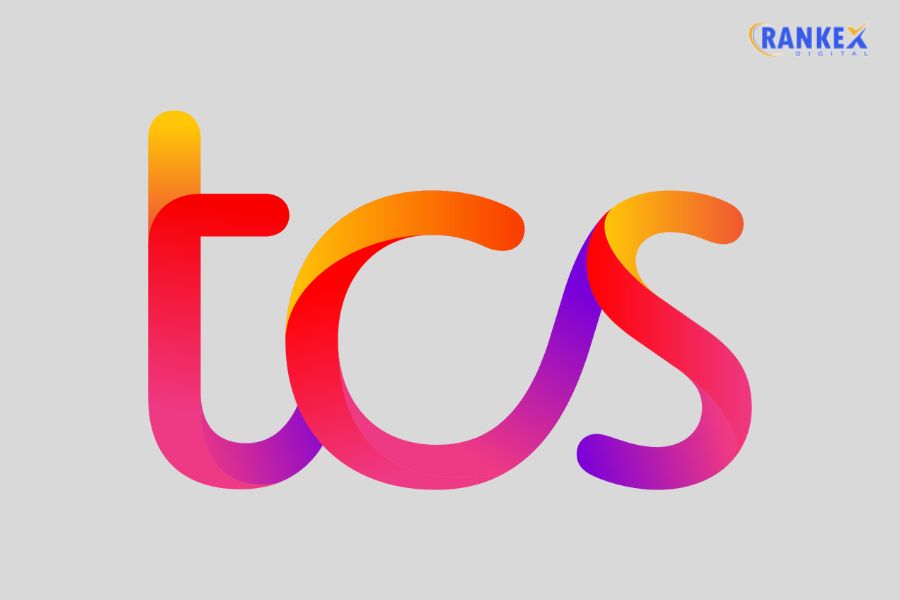
| Founder | Tata Group (Established by J.R.D. Tata) |
|---|---|
| Year Founded | 1968 |
| Origin | Mumbai, India |
| Industry | Information Technology & Consulting |
| Annual Revenue | $30 Billion (FY 2023) |
| Employees | 600,000+ (Globally) |
TCS is known for its extensive service portfolio and strong global delivery network. It serves clients across various industries, including banking and financial services, healthcare, manufacturing, and retail.
Current News on the Market on TCS
- Expansion into Cloud Services: TCS is investing heavily in cloud technologies, offering comprehensive cloud solutions to help businesses transition and optimize their cloud infrastructure.
- Focus on AI and Automation: The company is leveraging artificial intelligence and automation to enhance its service offerings and deliver more efficient solutions to clients.
- Sustainability Initiatives: TCS has launched several sustainability initiatives, including reducing its carbon footprint and promoting green IT solutions as part of its corporate social responsibility (CSR) efforts.
- Strategic Partnerships and Acquisitions: TCS continues to form strategic alliances and acquire companies to expand its capabilities and market reach, including recent acquisitions in digital and consulting services.
- Emphasis on Employee Training and Development: TCS is enhancing its training programs to upskill its workforce in emerging technologies, ensuring it remains competitive in a rapidly evolving industry.
SWOT Analysis of TCS
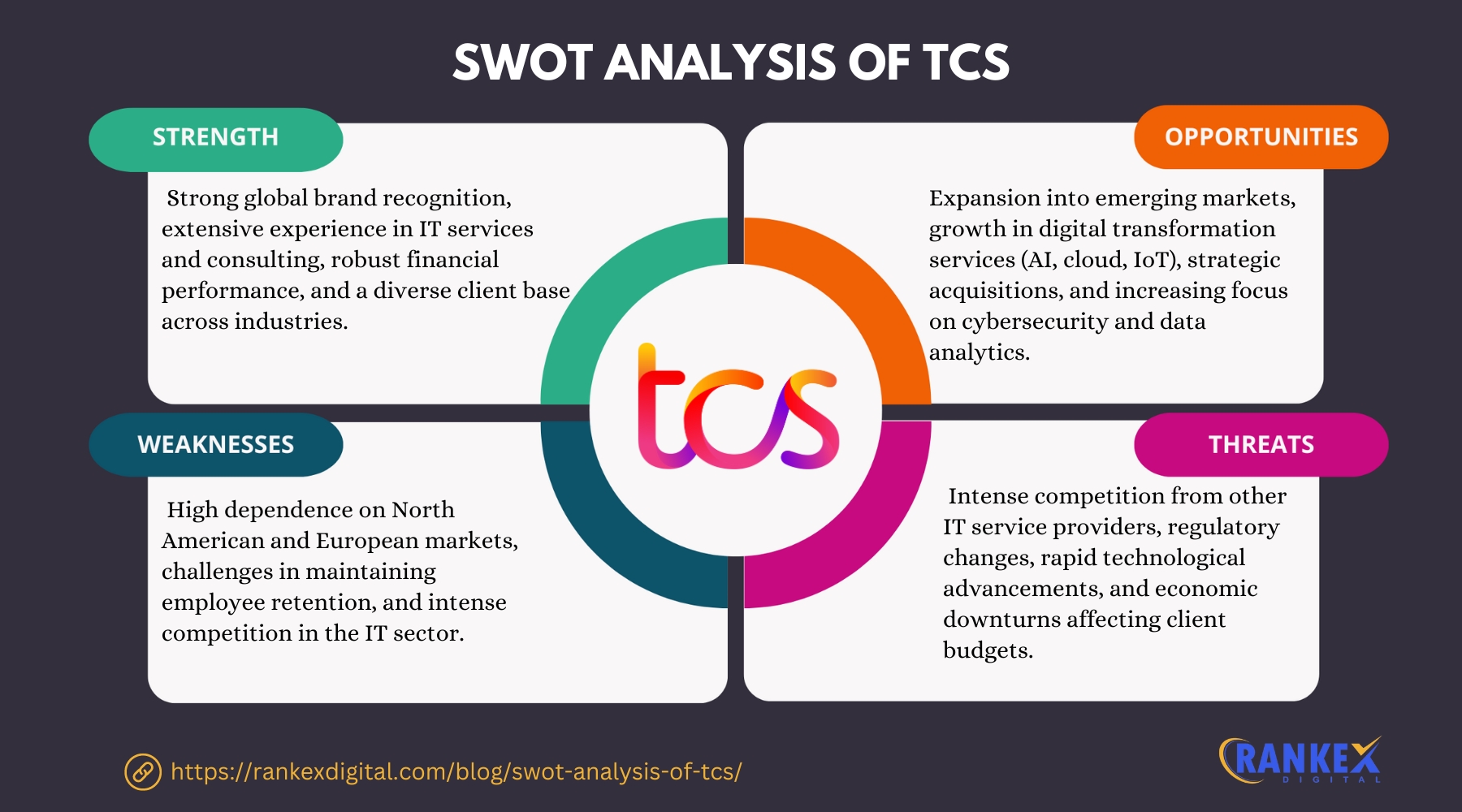
Strengths of TCS
- Global Presence and Scale
TCS operates in over 50 countries, providing a wide range of IT services and solutions. Its large global footprint allows it to serve multinational clients efficiently and leverage economies of scale. - Strong Brand Reputation
As one of the largest IT services companies globally, TCS has built a strong brand reputation for delivering high-quality services and solutions. Its brand strength contributes to client trust and business growth. - Diverse Service Portfolio
TCS offers a comprehensive range of services, including consulting, IT services, digital solutions, and business process outsourcing. This diversity allows TCS to cater to various industry needs and mitigate risks associated with dependence on a single service line. - Innovation and R&D Capabilities
TCS invests significantly in research and development, focusing on emerging technologies such as artificial intelligence, machine learning, and blockchain. Its innovation capabilities help it stay ahead of industry trends and meet evolving client needs. - Strong Financial Performance
TCS consistently reports strong financial performance, with substantial revenue growth and profitability. Its solid financial position enables it to invest in new technologies, expand operations, and pursue strategic opportunities.
Weaknesses of TCS
- High Dependence on the US Market
A significant portion of TCS’s revenue comes from the United States, making it vulnerable to economic fluctuations and regulatory changes in this key market. Diversifying its client base across other regions could help mitigate this risk. - Challenges in Talent Retention
The IT industry is highly competitive, and retaining skilled talent can be challenging. TCS faces competition from other tech giants and startups, which can impact its ability to maintain a skilled and motivated workforce. - Operational Complexity
Managing a vast global operation with diverse service offerings can lead to operational complexity. Ensuring consistent service quality across different geographies and service lines requires robust management and coordination. - Pricing Pressure
The IT services industry faces intense pricing pressure due to competition and the commoditization of certain services. TCS must balance competitive pricing with maintaining profitability and investing in innovation. - Cultural and Regional Differences
Operating in multiple regions with varying cultural and business practices can pose challenges. TCS needs to navigate these differences to deliver effective solutions and build strong client relationships.
Opportunities for TCS
- Growth in Cloud Computing
The increasing adoption of cloud technologies presents a significant growth opportunity for TCS. By expanding its cloud service offerings and partnerships, TCS can capture a larger share of the growing cloud market. - Expansion into Emerging Markets
Emerging markets, particularly in Asia and Africa, offer growth potential for TCS. These regions are experiencing rapid digital transformation, creating opportunities for IT services and consulting. - Increased Demand for Digital Transformation
Businesses are increasingly seeking digital transformation solutions to enhance efficiency and competitiveness. TCS can capitalize on this trend by offering innovative digital solutions and consulting services. - Strategic Partnerships and Acquisitions
Forming strategic partnerships and acquiring companies in complementary sectors can help TCS expand its service offerings and market presence. Collaborations with tech startups and industry leaders can drive growth and innovation. - Focus on Sustainability and Green IT
The growing emphasis on sustainability provides an opportunity for TCS to enhance its green IT solutions and promote sustainable practices. This focus can improve its brand image and attract clients committed to environmental responsibility.
Threats to TCS
- Intense Competition
TCS faces competition from other global IT services giants, such as IBM, Accenture, and Infosys, as well as emerging players in the technology sector. This competition can impact market share and pricing strategies. - Economic Uncertainty
Global economic uncertainties and fluctuations can affect client budgets and IT spending. Economic downturns may lead to reduced demand for IT services and impact TCS’s revenue growth. - Rapid Technological Changes
The fast pace of technological advancements can pose a threat if TCS fails to keep up with new technologies and trends. Staying ahead of technology changes is crucial for maintaining competitiveness. - Cybersecurity Risks
As a provider of IT services, TCS is vulnerable to cybersecurity threats, including data breaches and cyber-attacks. Ensuring robust security measures and protecting client data are essential to mitigating these risks. - Regulatory and Compliance Issues
TCS must comply with various regulations and standards across different countries, including data protection laws and industry-specific regulations. Navigating these compliance requirements can be complex and resource-intensive.
Competitors of TCS
- Accenture
Accenture is a global leader in consulting and professional services, offering a wide range of solutions including strategy, digital transformation, and technology services. It competes with TCS across various service segments. - IBM Global Services
IBM Global Services provides IT consulting and services, including cloud computing, AI, and cybersecurity. It is a significant competitor in the technology and consulting sectors. - Infosys
Infosys, another major Indian IT services provider, offers consulting, technology, and outsourcing services. It competes with TCS in various markets and service lines. - Wipro
Wipro is a global IT services and consulting company, known for its IT solutions and services in areas such as cloud, AI, and digital transformation. It competes with TCS in the IT services market. - Capgemini
Capgemini provides consulting, technology, and outsourcing services with a focus on digital transformation and innovation. It is a key competitor in the global IT services industry.
Conclusion
The SWOT analysis of TCS highlights its strong global presence, brand reputation, and diverse service portfolio as key strengths. However, the company faces challenges such as intense competition, operational complexity, and regulatory risks.
By capitalizing on opportunities in cloud computing, emerging markets, and digital transformation, while addressing threats from economic uncertainties and cybersecurity risks, TCS can continue to strengthen its market position and drive growth in the global IT services industry.
Frequently Asked Questions
1. What are TCS’s main strengths?
TCS’s main strengths include its global presence, strong brand reputation, diverse service portfolio, innovation and R&D capabilities, and strong financial performance.
2. How does TCS address competition in the IT services market?
TCS addresses competition by investing in technology and innovation, expanding its service offerings, forming strategic partnerships, and maintaining a strong global delivery network.
3. What opportunities does TCS have for growth in 2025?
Opportunities for TCS include growth in cloud computing, expansion into emerging markets, increased demand for digital transformation, strategic partnerships and acquisitions, and a focus on sustainability and green IT.
4. What are the major threats to TCS?
Major threats include intense competition, economic uncertainty, rapid technological changes, cybersecurity risks, and regulatory and compliance issues.
5. Who are TCS’s main competitors?
TCS’s main competitors include Accenture, IBM Global Services, Infosys, Wipro, and Capgemini, each competing in various segments of the IT services and consulting industry.

